The case for coming out
June finally came, and as my fingers hovered over the “share” button on my Instagram post being “outed” was no longer terrifying, but exhilarating… because it was me doing the outing.
October 11, 2020
CW: suicidal ideation, substance misuse
October 11 is the 32nd National Coming Out Day. Depending on who you are, the idea of “coming out” could bring up a plethora of feelings. As time has gone on, I’ve noticed a shift away from a positive feeling about the concept of coming out within the LGBTQIA+ community. This is valid, as coming out perpetuates the thought that heterosexuality is the norm, and anything outside of that category needs to be called on, pointed out and branded an anomaly.
Coming out can also cause people to feel forced into labeling themselves or decisions that they feel stuck in. Sexuality is fluid– labels make that hard.
As this article from Cosmopolitan points out, coming out isn’t a one-time event, it happens throughout people’s lives and can vary in situations and environments that they are in. It can place emphasis on sexuality instead of focusing on someone as a whole.
Being where I am now, more secure in my identity, and in a loving and supportive environment, I know that I don’t need to come out when I have a shift in my gender identity or sexuality. It just is what it is.
I also know that in 2017, coming out was what I needed.
After years of struggling to accept my sexuality, I realized the detrimental effect that denying it had on my wellbeing. I was able to come out the summer before my senior year of high school…
But only to myself.
I had to keep this part of me a secret because at my Christian school they “retain the right to refuse enrollment or to expel any student who engages in sexual immorality” including “homosexual or lesbian sexual activity,” according to the student handbook.
If I came out, if anyone found out, I risked being kicked out.
I thought about leaving the school, but with one year left and all of the support that I received from the administration and my teachers regarding my medical issues, sticking it out felt like the right choice. With my the symptoms of my chronic illnesses getting bad again, talk of taking a leave of absence became more serious.
I was devastated that my health was backsliding and that I would miss my senior season of volleyball. It made it even worse that people who I thought were my friends, were unsupportive and invalidating.
This all took place in September 2016, a time where due to the political climate, I was able to see clearly the attitudes, beliefs, and true colors of the people within my small conservative school. I was also able to see how outside of the bubble, there were people who thought like me, identified like me, and would accept me for who I am.
I believe it was the empowerment of seeing that the world was bigger than what I knew that compelled me to come out to two of my friends, who were also my teammates. On that Friday afternoon in September, after practice with tears in my eyes, I asked them to promise me that they wouldn’t tell anyone. To be finally opening up to someone, I felt a weight taken off of my shoulders.
Monday morning I walked into the senior lounge and the entire room went silent. The weight that had been taken off my shoulders was suddenly crashing back down on me tenfold.
I took my leave of absence, and after a month, I was cleared to go back to school. With how the timing worked out, my first week back was homecoming week. I hoped that the distraction of dress-up days, class competitions, volleyball games against our rivals, a charity alumni game, and senior night would distract everyone from the news of my sexuality that had been broadcasted a month prior.
That was wishful thinking.
Despite being betrayed by the people I had spent so much time with throughout my six years of dedication to the volleyball program, and missing my last season, I still wanted to put on my jersey one last time for senior night.
There was a rule about not being allowed to participate in out-of-school activities if you missed school, but the principal knew of my health situation and excitement about the game. After my doctors cleared me to play, she said I could start in the game and play for the first point. For me, that was more than enough.
With excitement, I went to my coach to ask him if I could play for the first point, explaining that I had gotten permission. It seemed like the perfect solution, and I assumed it would be an automatic yes.
I was blindsided when he said “no.” Before having a chance to fully comprehend his bluntness, he told me that he would need my jersey back before the game.
The girls who outed me insisted that the coach’s decision was based on the school policy, but I knew that wasn’t true.
Although I’ll never know for sure, every part of me believes that not being allowed to play and getting my jersey taken away was based on the team being uncomfortable with my queerness.
The unaccepting attitude carried off of the court and into the classroom, from whispers and giggles whenever I spoke in class, to people bringing up the “sin of homosexuality” in bible class just to get a reaction from me. The whole school knew.
I tried to stand up for myself to one of the girls who outed me, but it only made matters worse with her fabricating a story about me cornering her in the bathroom. That only led to more cruelty.
It was held over my head that if I told anyone about the way I was being treated, they might out me to teachers or administrators.
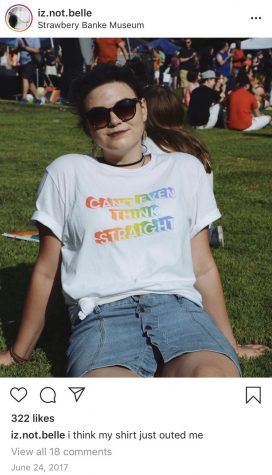
With the hostility of the environment, I was constantly walking on eggshells. I made myself small and kept quiet, falling into a deep depression with near-constant suicidal thoughts and misuse of substances. I kept telling myself that it wouldn’t be like this forever.
I longed for June. For graduation and an end to the fear. For pride celebrations where I would be able to be more than an “ally” in the shadows. I longed for college orientation and leaving the hate and pain of high school behind me. I longed for the day I would be able to metaphorically scream from the rooftops about my queerness.
June finally came, and as my fingers hovered over the “share” button on my Instagram post being “outed” was no longer terrifying, but exhilarating… because it was me doing the outing.
Coming out is not a necessary part of a queer person’s existence, and there shouldn’t be so much expectation and weight on it. That being said, I don’t think it would be productive to do away with the concept completely. For some people, myself included, making a declaration of their sexuality can be life changing.
It wasn’t all sunshine and rainbows (no pun intended,) – and ignorant things still happen, but overall my life drastically improved after I came out.
I continue to heal from the pain of what took place in high school. I have discovered who my true friends are, and have built long-lasting relationships with them, even going to a Pride event with some. I am still navigating forgiveness for those who caused me so much harm, and rebuilding my faith based on the principle of God loving me and accepting me fully, my queerness and all.
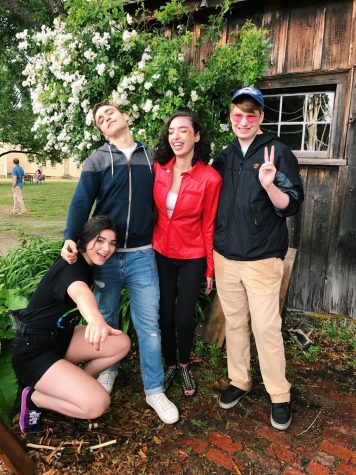



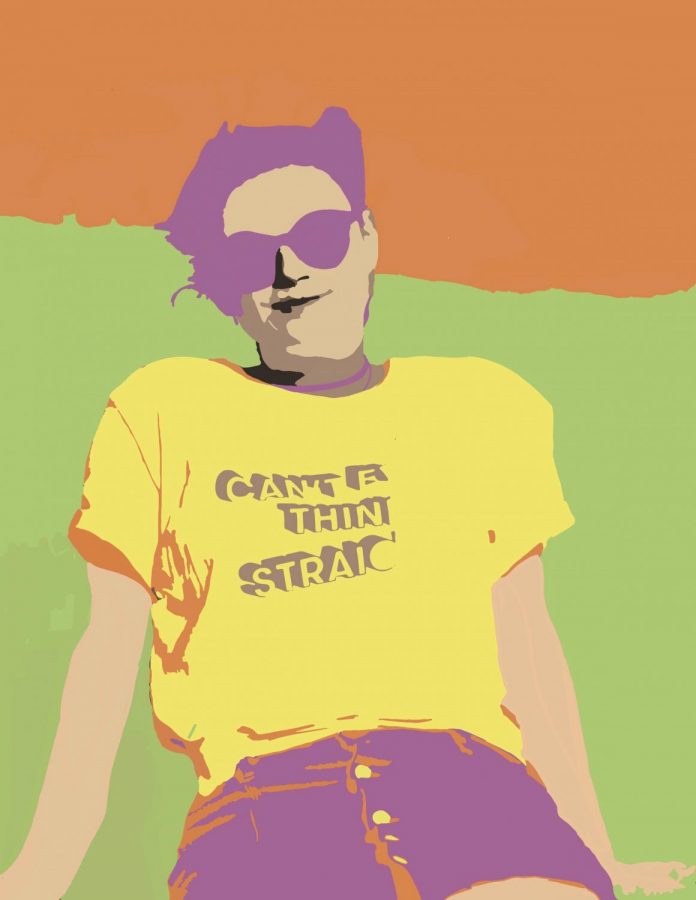
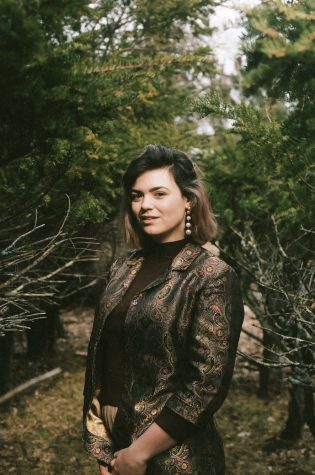


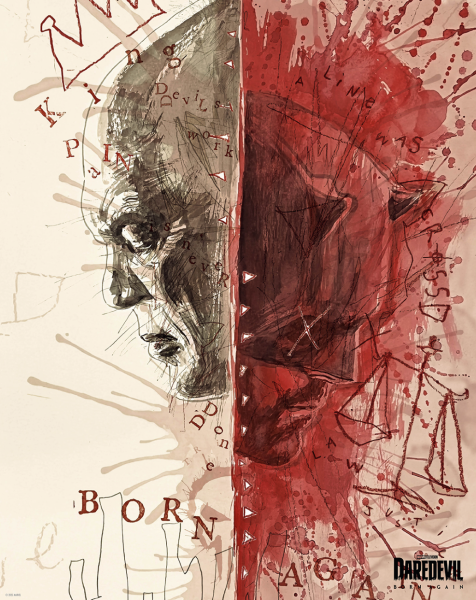
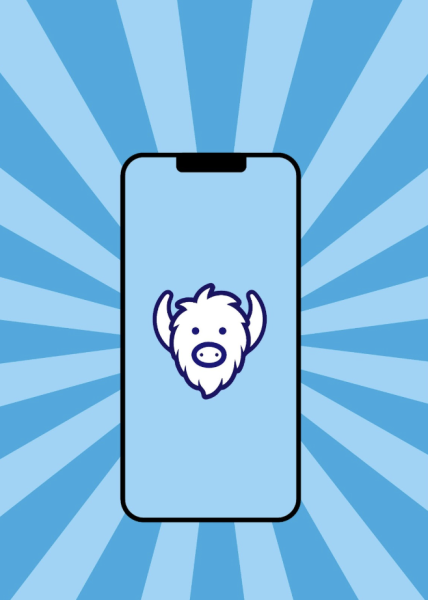
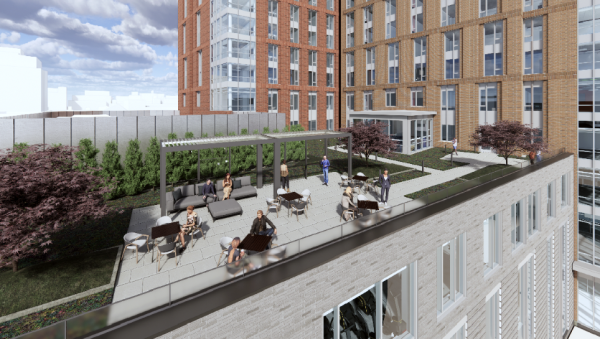
Carole Roy • Oct 14, 2020 at 11:38 pm
Hi Belle!
Reading stories like yours makes me sad. The cruelty of ignorance always amazes me. The courage and strength needed to navigate youth is so necessary. Only the strong survive but not unscathed. In life, we all have our own battles followed by our own victories!!! I’ve often screamed at God, “YOU THINK WAY TOO HIGHLY OF ME “ stop testing me, I’m going to fail. But again I emerge victorious. Sometimes the emergence takes a very long time but…… Anyways Belle, I didn’t mean to go on, I just want you to know that in my experience , it’s all been worth it. ( mostly )
Keep up the good fight, always hold your head up and don’t forget to laugh!!!
With love, Carole Roy